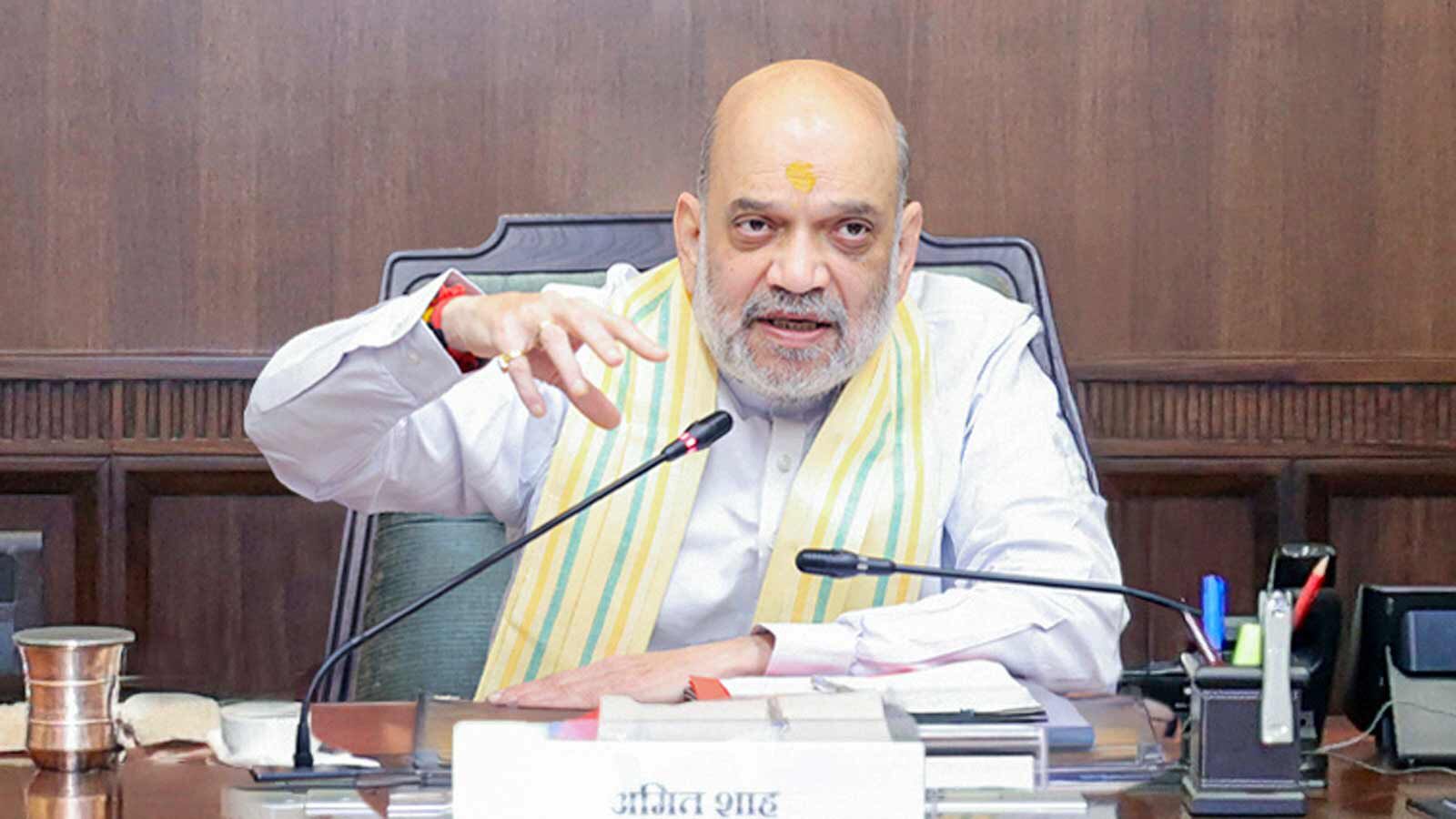Bihar Govt Formation 2025: Nitish Kumar Resigns; NDA Moves Toward New Power-Sharing Plan
Amit Shah to Chair 32nd Northern Zonal Council Meeting in Faridabad on Nov 17
Faridabad, November 16 —
Union Home Minister Amit Shah is set to chair the 32nd meeting of the Northern Zonal Council (NZC) in Faridabad, Haryana, on Monday. Senior officials from the Central government, along with representatives from all states and Union Territories that make up the Northern Zone, will participate. These include Haryana, Himachal Pradesh, Punjab, Rajasthan, Delhi, Jammu and Kashmir, Ladakh and Chandigarh. The meeting aims to strengthen cooperation among states and promote smoother coordination with the Centre.
The event is being organised by the Inter-State Council Secretariat under the Ministry of Home Affairs, while the Government of Haryana is hosting it. The Northern Zonal Council, created under the States Reorganisation Act of 1956, is one of five such councils formed to encourage dialogue and collaboration between states. Amit Shah presides over the council as chairperson, while the Chief Minister of Haryana serves as the current vice-chairperson. The role rotates every year among member states, and each state’s Governor nominates two ministers to represent them. A permanent committee made up of Chief Secretaries examines key issues beforehand and prepares them for deeper discussion during the main meeting.
The upcoming session reflects Prime Minister Narendra Modi’s vision of “TEAM BHARAT,” which focuses on unity and cooperation among states to build a stronger and more efficient nation. Zonal Councils provide a crucial forum for states to discuss issues that go beyond borders, helping them build consensus and share best practices in governance.
Though advisory in nature, these councils have become important tools for resolving disputes, encouraging dialogue and supporting development across regions. Over the last eleven years, 63 meetings of the Zonal Councils and their permanent committees have taken place, showing a rise in participation and interest from state governments and central ministries.
The Northern Zonal Council discusses a wide range of topics affecting the lives of people across the region. These include improving the speed and quality of investigations involving crimes against women and children, ensuring every village gets access to banking services, and strengthening the 112 Emergency Response Support System. Social sectors like health, nutrition, electricity supply, education and urban planning are also key items on the agenda. Issues related to the cooperative sector and other matters requiring coordination between states often receive special attention as well.
The 32nd meeting is expected to continue this tradition of productive dialogue, helping states find solutions to shared challenges. With Amit Shah chairing the session and senior leaders from all Northern states participating, the gathering aims to reinforce cooperative federalism and encourage stronger partnerships for regional development.
Amit Shah to Chair 32nd Northern Zonal Council Meeting in Faridabad on Nov 17
The 32nd Northern Zonal Council Meeting in Faridabad brings together top officials and leaders from across Northern India, with Union Home Minister Amit Shah chairing the session. Representatives from Haryana, Punjab, Rajasthan, Himachal Pradesh, Delhi, Jammu and Kashmir, Ladakh and Chandigarh will gather to discuss key issues that affect the region as a whole.
The meeting is part of the government’s push to strengthen cooperation between states and improve coordination with the Centre. From law and order to social welfare, from emergency response systems to better access to banking, the council addresses challenges that cut across state borders.
This platform has become increasingly important in recent years, helping states resolve disputes, share solutions and work together more effectively. With a rise in meetings and participation, the councils now play a major role in improving governance and speeding up development.
The Faridabad session is expected to continue that momentum, focusing on better service delivery, stronger inter-state collaboration and a more unified approach to regional progress. A meaningful step towards cooperative federalism and a stronger TEAM BHARAT.














Add Comment